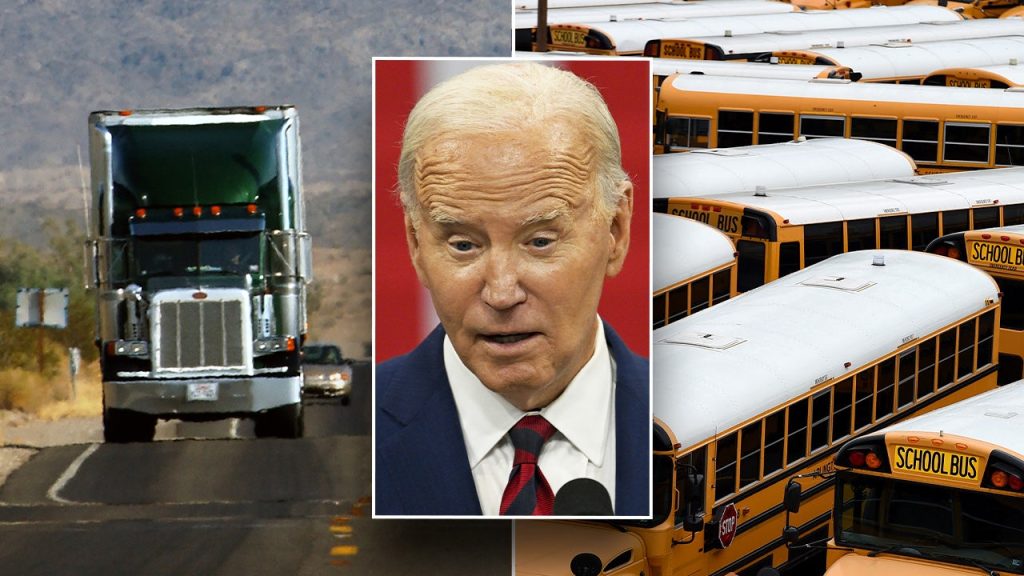American truck drivers are criticizing the Biden administration’s new environmental regulations that call for the heavy-duty vehicle industry to transition to all-electric vehicles. They argue that the technology for electric heavy-duty vehicles is not advanced enough to replace the existing diesel fleet, citing issues related to vehicle batteries, charging infrastructure, and power grid upgrades. Truckers are concerned that electric trucks do not have the same capabilities as diesel trucks, such as lower performance in cold weather, shorter range, and longer charging times.
The Environmental Protection Agency recently finalized regulations that will go into effect from 2026, gradually becoming more stringent until 2032. These regulations will impact a wide range of vehicles, including short-haul and long-haul tractor-trailer trucks, delivery vehicles, school and public transit buses, and other vocational trucks. The EPA predicts that a significant percentage of these vehicles produced in 2032 will be electric. However, the transition to electric trucks poses challenges, such as limited range, longer charging times, and higher costs compared to traditional diesel models.
Despite the limitations of electric trucks, the Biden administration continues to push for their adoption in the heavy-duty vehicle sector. Truckers, industry groups, and stakeholders have voiced their concerns about the regulations, describing them as burdensome, expensive, and lacking consideration for the practical challenges faced by truckers. The lack of charging infrastructure and power grid capacity to support a large-scale transition to electric trucks is a major obstacle that needs to be addressed before implementing these regulations.
The American Trucking Associations, American Bus Association, and other industry groups have joined individual truckers in opposing the EPA’s regulations, highlighting the potential negative impact on the trucking industry. They argue that the regulations are based on technology that is not yet fully developed and may not be cost-effective for truckers, especially small business owners. Critics have also raised concerns about the strain on the U.S. power grid that would result from a widespread transition to electric trucks, calling for a more comprehensive approach to address these challenges.
The EPA has defended its regulations, emphasizing the public health benefits they will provide while allowing fleet owners and operators to choose the best vehicle technologies for their operations. The agency plans to monitor the implementation of the regulations in the coming years and make adjustments if necessary. However, truckers and industry groups remain skeptical about the feasibility of transitioning to all-electric heavy-duty vehicles without addressing the practical challenges and infrastructure requirements involved.
Overall, the debate over the Biden administration’s environmental regulations for heavy-duty vehicles reflects the broader challenges facing the trucking industry in transitioning to electric vehicles. Truckers are calling for a more comprehensive and realistic approach that takes into account the limitations of current technology, the need for robust charging infrastructure, and the impact on the power grid. As the transition to electric trucks continues to unfold, stakeholders will need to work together to address these challenges and ensure a smooth and successful transition to a more sustainable transportation sector.


